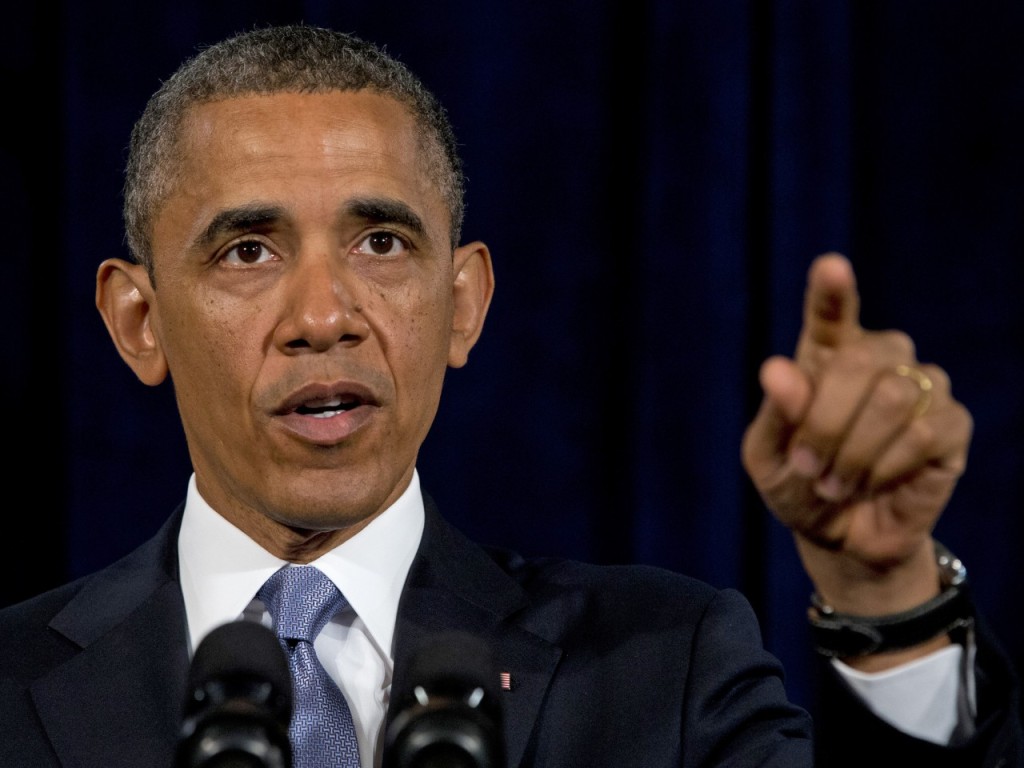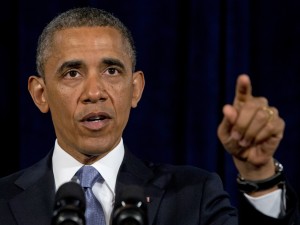ProPublica
President Obama announced last week some limited reforms to National Security Agency surveillance programs. Since the first disclosures based on documents provided by former NSA contractor Edward Snowden, Obama has offered his own defenses of the programs. But not all of the president’s claims have stood up to scrutiny. Here are some of the misleading assertions he has made.
1. There have been no abuses.
And I think it’s important to note that in all the reviews of this program [Section 215] that have been done, in fact, there have not been actual instances where it’s been alleged that the NSA in some ways acted inappropriately in the use of this data … There had not been evidence and there continues not to be evidence that the particular program had been abused in how it was used. — Dec. 20, 2013
At press conferences in June, August and December, Obama made assurances that two types of bulk surveillance had not been misused. In fact, the Foreign Intelligence Surveillance Court has reprimanded the NSA for abuses both in warrantless surveillance targeting people abroad, and in bulk domestic phone records collection.
In 2011, the FISA Court found that for three years, the NSA had been collecting tens of thousands of domestic emails and other communications in violation of the Fourth Amendment. The court ordered the NSA to do more to filter out those communications. In a footnote, Judge John D. Bates also chastised the NSA for repeatedly misleading the court about the extent of its surveillance. In 2009 – weeks after Obama took office – the court concluded the procedures designed to protect the privacy of American phone records had been “so frequently and systemically violated that it can fairly be said that this critical element of the overall … regime has never functioned effectively.”
The NSA told the court those violations were unintentional and a result of technological limitations. But the NSA’s own inspector general has also documented some “willful” abuses: About a dozen NSA employees have used government surveillance to spy on their lovers and exes, a practice reportedly called “LOVEINT.”
2. At least 50 terrorist threats have been averted.
We know of at least 50 threats that have been averted because of this information not just in the United States, but, in some cases, threats here in Germany. So lives have been saved. — June 19, 2013
The record is far less clear. Obama’s own review group concluded that the sweeping phone records collection program has not prevented any terrorist attacks. At this point, the only suspect the NSA says it identified using the phone records collection program is a San Diego cab driver later convicted of sending $8,500 to a terrorist group in his homeland of Somalia.
The NSA’s targeting of people abroad appears to have been more effective around counter-terrorism, as even surveillance skeptics in Congress acknowledge. But it’s impossible to assess the role the NSA played in each case because the list of thwarted attacks is classified. And what we do know about the few cases that have become public raises even more questions:
Contrary to what Obama suggested on the “Charlie Rose Show” in June, the AP has reported that the FBI did not need either program to identify Najibullah Zazi, later convicted of plotting to attack the New York subway system.
ProPublica has reported that one case began with a tip from British intelligence, not NSA surveillance.
In another case, no one has been charged related to the alleged plot.
3. The NSA does not do any domestic spying.
We put in some additional safeguards to make sure that there is federal court oversight as well as Congressional oversight that there is no spying on Americans. We don’t have a domestic spying program. What we do have are some mechanisms where we can track a phone number or an e-mail address that we know is connected to some sort of terrorist threat, and that information is useful. — Aug. 7, 2013
In fact, plenty of Americans’ communications get swept up. The government, of course, has the phone records of most Americans. And, as the FISA Court learned in 2011, the NSA was gathering tens of thousands of domestic emails and other communications.
Additionally, the NSA’s minimization procedures, which are supposed to protect American privacy, allow the agency to keep and use purely domestic communications in some circumstances. If the NSA “inadvertently” vacuums up American communications that are encrypted, contain evidence of a crime, or relate to cybersecurity, the NSA can retain those communications.
The privacy standards suggest there is a “backdoor loophole” that allows the NSA to search for American communications. NSA critic Sen. Ron Wyden, D-Ore., has said, “Once Americans’ communications are collected, a gap in the law that I call the ‘back-door searches loophole’ allows the government to potentially go through these communications and conduct warrantless searches for the phone calls or emails of law-abiding Americans.”It’s not clear whether the NSA has actually used this “backdoor.”
And while the NSA acknowledges that it intercepts communications between Americans and surveillance targets abroad, the agency also intercepts some domestic communications that mention information about foreigners who have been targeted. As a result, the NSA has sometimes searched communications from Americans who have not been suspected of wrongdoing – though an NSA official says the agency uses “very precise” searches to avoid those intercepts as much as possible.
4. Snowden failed to take advantage of whistleblower protections.
I signed an executive order well before Mr. Snowden leaked this information that provided whistleblower protection to the intelligence community – for the first time. So there were other avenues available for somebody whose conscience was stirred and thought that they needed to question government actions. — Aug. 9, 2013
Obama’s presidential policy directive forbids agencies from retaliating against intelligence personnel who report waste, fraud and abuse. But the measure mentions only “employees,” not contractors. Whistleblower advocates say that means the order does not cover intelligence contractors.
“I often have contractors coming to me with whistleblower-type concerns and they are the least protected of them all,” attorney Mark Zaid told the Washington Post.
What’s more, the directive was not yet in effect at the time Snowden came forward.Since the leaks, the Office of the Director of National Intelligence has said “the Executive Branch is evaluating the scope” of the protections.
Former NSA employee Thomas Drake argues that even if Snowden were a government employee who went through the proper legal channels, he still wouldn’t have been safe from retaliation. Drake says while he reported his concerns about a 2001 surveillance program to his NSA superiors, Congress, and the Department of Defense, he was told the program was legal. Drake was later indicted for providing information to the Baltimore Sun. After years of legal wrangling, Drake pleaded guilty to a lesser charge and got no prison time.


